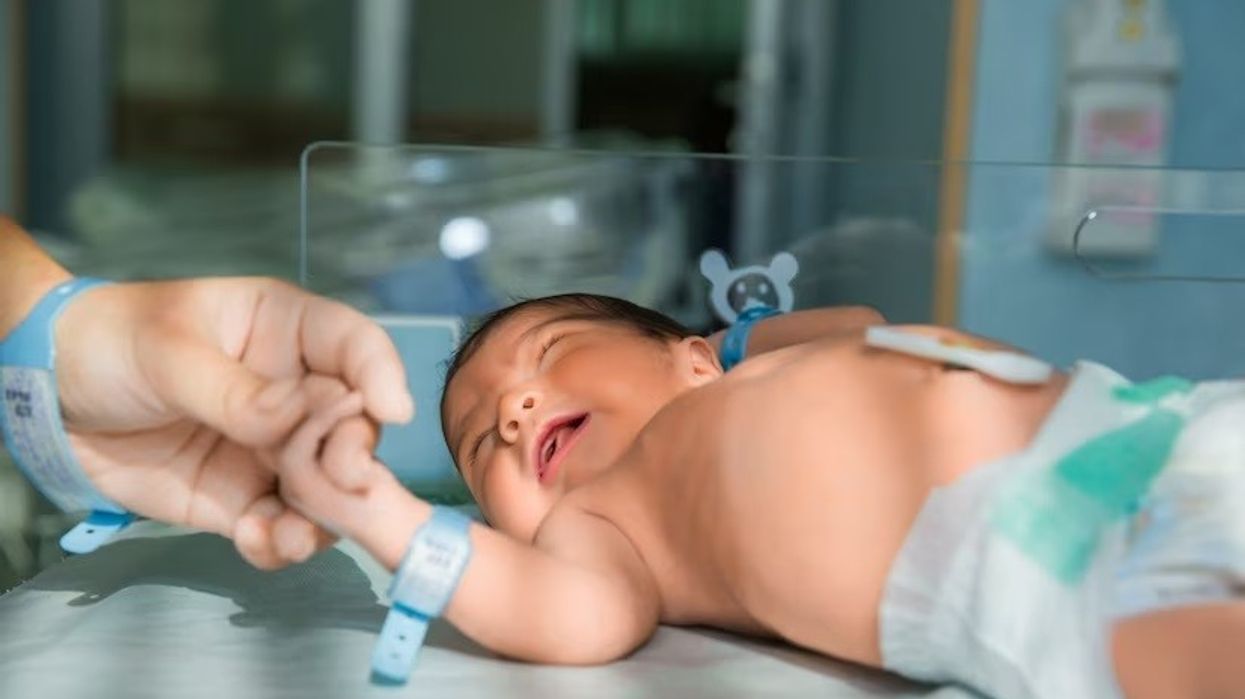The current increase has been linked to a steady decline in the uptake of maternal pertussis vaccine and childhood vaccinations
The UK Health Security Agency (UKHSA) has warned that there has been a continued increase in cases of whooping cough (pertussis) across England since the start of this year.
According to new data published by the agency on Thursday (7 March), 553 new cases of whooping cough were confirmed in January alone, compared with 858 cases for the whole of last year (2023).
The country is witnessing a surge in whooping cough cases after a prolonged period of low case numbers, attributed to restrictions and reduced social interaction during the COVID-19 pandemic. England recorded the highest number of whooping cough cases in 2016, recording 5,949 cases.
As the ongoing rise coincides with a steady decline in the vaccination rates among pregnant women and children, UKHSA has strongly encouraged mums-to-be to get the maternal pertussis vaccine so that their young baby is protected against this serious disease.
As per the data for January, 22 infants aged under 3 months were diagnosed with whooping cough. UKHSA warned that these infants, who are too young to be fully vaccinated, are at greater risk of severe disease, including death.
The agency emphasised that vaccinating pregnant women is 97 per cent effective in preventing death in young infants from whooping cough.
Dr Gayatri Amirthalingam, Consultant Epidemiologist at UKHSA, said: “Whooping cough can affect people of all ages but for very young infants, it can be particularly serious. However, vaccinating pregnant women is highly effective in protecting babies from birth until they can receive their own vaccines.
“Parents can also help protect their children by ensuring they receive their vaccines at the right time or catching up as soon as possible if they have missed any. If you’re unsure, please check your child’s red book or get in touch with your GP surgery.”
Steve Russell, National Director for Vaccinations and Screening at NHS England, has urged families come forward to get the protection they need.
“If you are pregnant and have not been vaccinated yet, or your child is not up-to-date with whooping cough or other routine vaccinations, please contact your GP as soon as possible, and if you or your child have symptoms ask for an urgent GP appointment or get help from NHS 111,” he said.
Parents are encouraged to ensure that their children are vaccinated against whooping cough. The vaccine is offered to all infants at 8, 12 and 16 weeks of age as part of the 6-in-1 combination vaccine, with an additional dose included in the pre-school booster vaccine.
The agency highlighted a consistent decrease in the uptake of all childhood vaccinations offered through the routine NHS programme in England over the past decade.
As of September 2023, the percentage of 2-year-olds who completed their 6-in-1 vaccinations stands at 92.9 per cent, a decrease from 96.3 per cent recorded in March 2014, as revealed by the agency.
Additionally, uptake of the maternal pertussis vaccine, offered to women in every pregnancy, has dropped from over 70 per cent in September 2017 to around 58 per cent in September 2023.
Know more about whooping cough
Clinically known as pertussis, it is a bacterial infection that affects the lungs. Initial symptoms of the infection are similar to those of a cold, including a runny nose and sore throat. However, after approximately a week, the infection may progress to bouts of coughing that can last for a few minutes, typically worse at night.
Young babies may exhibit a distinctive "whoop" sound or experience breathing difficulties after a bout of coughing.
People who are diagnosed with whooping cough are advised to stay at home and avoid going to work, school or nursery until 48 hours after starting antibiotics, or 3 weeks after symptoms start if they have not had antibiotics to prevent the spread of infection, especially to vulnerable groups.
However, UKHSA underscored that vaccination is the best protection for babies and children.













